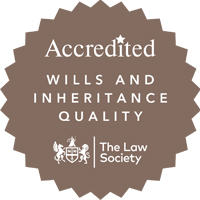Island Knowledge - National Expertise
Marriage is a significant life event that can have far-reaching implications on various aspects of one's life, including their financial and legal affairs. One such area that is affected by marriage or civil partnership is the declaration of trust or deed of trust.
A declaration of trust outlines the ownership rights and responsibilities of individuals who hold property jointly, outlining how the property is to be shared or divided in the event of separation or death.
In this article, we will explore the specific ways in which marriage can impact your declaration of trust or deed of trust. We will discuss the importance of reviewing and potentially revising these documents after getting married to ensure that they accurately reflect your current circumstances and wishes.
Stay tuned to learn more about the impact of marriage on your declaration of trust and how to properly navigate this important legal aspect of your relationship.
What is a Declaration of Trust?
A Declaration of Trust is a legal document that outlines the beneficial interests or rights of individuals in a property. This document is often used when two or more people jointly purchase a property, specifying each party's share of ownership.
A solicitor can assist in drafting a Declaration of Trust to ensure that the terms are set out clearly and accurately.
A Declaration of Trust is a legally binding document that can be amended if necessary. It records each party's beneficial interest in the property and helps avoid disputes or confusion in the future. It is a crucial legal document to have in place to protect the investment made in a property.
When should I enter a Declaration of Trust?
Entering into a Declaration of Trust is crucial when multiple parties are purchasing a property together and want to define their legal ownership rights clearly. It is particularly important for unmarried couples, friends, or family members who are jointly investing in a property to protect their individual interests.
By establishing the terms and conditions of ownership upfront, a Declaration of Trust can prevent misunderstandings and disputes down the line. Moreover, individuals may choose to enter a Declaration of Trust when buying a property with a financial contribution that is not equal to that of their co-owners.
This legal document can help ensure that each party receives a fair share of the property's value based on their investment. It also outlines how profits from the property's sale would be distributed among the co-owners, offering clarity and protection for all involved.
In essence, a Declaration of Trust provides a transparent framework for property co-ownership, outlining the rights and responsibilities of each party involved.
Considerations for Joint tenants and Tenants in Common
When co-owners purchase a property, they can either hold it as joint tenants or tenants in common.
Joint tenants have equal shares and rights to the entire property, and if one tenant passes away, their share automatically transfers to the surviving tenant(s). On the other hand, tenants in common have distinct shares of the property, which can be equal or unequal.
In the context of a Declaration of Trust, the type of co-ownership arrangement chosen by the parties can significantly impact the document's content and provisions.
For joint tenants, the Declaration of Trust would typically confirm the equal ownership of all parties, while for tenants in common, it would outline each owner’s specific share of the property. In the event of a dispute or separation, the terms of co-ownership specified in the Declaration of Trust can offer guidance on how the property should be divided or sold.
Considerations such as mortgage liabilities, capital gains taxes, and other financial aspects may differ depending on whether the co-owners are joint tenants or tenants in common, emphasising the importance of clarity in the initial agreement.
Does a Deed of Trust still stand after marriage?
Many individuals wonder whether a Deed of Trust, also known as a Declaration of Trust, remains valid after they get married.
The answer to this question largely depends on the specific terms set out in the document and the applicable laws in the jurisdiction where the property is located.
In most cases, after marriage, a Declaration of Trust will be superseded by the Matrimonial Causes Act 1973. However, should a married couple or those in a civil partnership divorce / separate the courts will typically take into account the terms of the Deed of Trust when determining each party's beneficial interest in the property.
It is crucial for individuals who have a Declaration of Trust in place before getting married to review the document and seek legal advice if necessary to understand how marriage may affect their beneficial interests in the property. In some cases, couples may need to update or amend their Declaration of Trust to reflect changes in their circumstances or preferences after marriage.
What invalidates a deed of trust?
Invalidating a deed of trust can occur in various ways. For example, if the trust deed is not a legally binding agreement, it may not hold up in court. Additionally, if the declaration of trust is not properly recorded, it could be deemed invalid. Another situation where a deed of trust may be invalidated is if the trust is to remove a share of a property when the property is sold. In such cases, the trust deed and declaration of trust will need to be updated. Failing to keep up with legally binding arrangements such as mortgage repayments can also lead to the invalidation of the trust.
To avoid this, a declaration of trust can also be amended with a deed of variation in the event of changing circumstances. For example, a trust with a prenuptial agreement may need to be revised in the event of a divorce. Similarly, cohabiting couples may benefit from replacing their declaration of trust to ensure greater certainty and to make their financial arrangements clear and legally binding.
How much does a Declaration of Trust cost?
The cost for preparing a Declaration of Trust is estimated to start at £750.00 plus VAT, with the final fee dependent on the complexity of the document, the number of clauses included, and any extra consultations needed during drafting.
Once an initial meeting has taken place, the final fee will be confirmed.
If you are thinking about entering into a Declaration of Trust, please get in touch with a member of our private client team by sending an email to hello@gdlegalservices.co.uk






